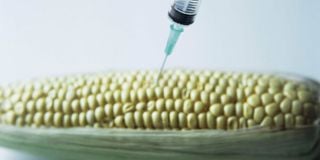Lifting of the GMO food ban is misguided

The government ought to review its lifting of a ban on genetically modified crops as part of mitigation for the drought that has caused hunger in the Horn of Africa.
The government ought to review its lifting of a ban on genetically modified crops as part of mitigation for the drought that has caused hunger in the Horn of Africa.
UN and relief organisations say Kenya’s food security situation is likely to worsen in the coming months due to poor rains and high food prices with 4.4 million people in dire need of aid.
But lobbies opposed to genetically modified organisms (GMO) faulted the move, citing potentially harmful effects on human health and agriculture. Over 10 civil society organisations asked the government to reinstate the ban and pursue alternative solutions to the food security challenges.
Production of GM crops poses a high risk of disruption of ecosystems and biodiversity as the “better” traits produced from the engineering of genes can result in the favouring of one organism. That can eventually disrupt the natural process of gene flow.
Several countries have banned GMOs. In the European Union, GMOs are banned in France, Germany, Austria, Greece, Hungary, the Netherlands, Latvia, Lithuania, Luxembourg, Bulgaria, Poland, Denmark, Malta, Slovenia, Italy and Croatia. Tanzania and Uganda also banned GMOs.
The Cabinet banned GM maize imports in 2012. That followed a controversial study led by French scientist Gilles-Eric Séralini that linked consumption of GM foods to cancer. A Route to Food survey last year showed 57 per cent of Kenyans opposed GM food.
Only BT cotton is grown commercially in Kenya, following government approval in 2019 because it is a non-food crop.
In 2006, the African Union resolved to prohibit GMOs. But it was soon reversed after it became apparent that GMOs could redefine agriculture. Despite unease, Africa is becoming the next frontier for GM technology.
Concerns have been expressed over the effects of GM foods on diet, as well as the limitations of procedures in safety evaluation.
Animal toxicity studies with certain GM foods show they may toxically affect several organs and systems. Most studies indicate that GMOs may cause common toxic effects such as hepatic, pancreatic, renal or reproductive effects and could alter the haematological, biochemical and immunologic parameters.
Yabesh Onwonga, Uasin Gishu




